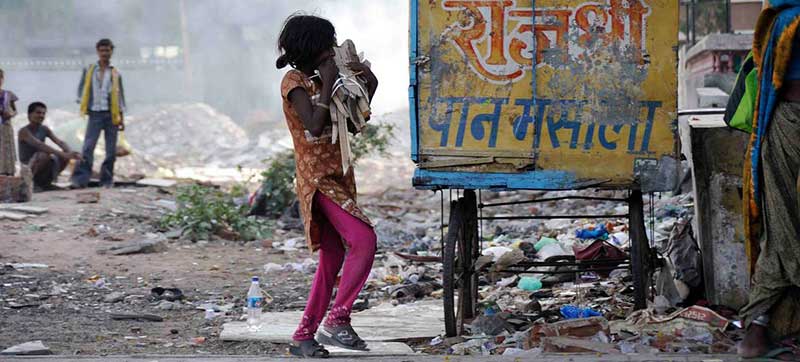Rapid poverty reduction in some countries, data missing in many others

New York: Twenty five countries, including some of the world’s biggest economies, have halved their poverty indices, but lack of post-COVID-19 pandemic data obscures the situation facing almost a billion people globally, a new United Nations-University of Oxford study has found.
According to the updated global Multidimensional Poverty Index, revealed on Tuesday by the UN Development Programme (UNDP) and the Poverty and Human Development Initiative at the University of Oxford, progress was seen in India, where 415 million people exited poverty in just 15 years, as well as in China (69 million) and Indonesia (8 million).
"As we reach the mid-point of the 2030 Agenda for Sustainable Development, we can clearly see that there was steady progress in multidimensional poverty reduction before the pandemic,” Pedro Conceição, Director of the Human Development Report Office, said.
But the lack of data for most of 110 countries covered by the index restricts the understanding of just how deeply the pandemic has impoverished millions, highlighting the urgent need to strengthen data collection.
“The negative impacts of the pandemic in dimensions such as education are significant and can have long-lasting consequences. It is imperative that we intensify efforts to comprehend the dimensions most negatively affected, necessitating strengthened data collection and policy efforts to get poverty reduction back on track,” Mr. Conceição added.
The Index
The global Multidimensional Poverty Index (MPI) measures poverty reduction and provides information for policymaking. It assesses poverty in various aspects of people’s daily lives, such as education, health, housing, and access to basic amenities.
The MPI also sheds light on the complexity of poverty – where different indicators contribute to people’s experience of poverty differently, varying from region to sub region, and between and within communities.
Ensuring that the data on global poverty is up-to-date and comprehensive is a crucial first step in addressing these challenges and maintaining progress towards a more equal world, UNDP said.



